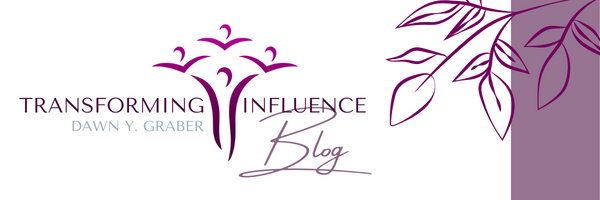Anxious, Lonely Times Need Leaders Who Prioritize Mental Health For All…
I know what an anxiety disorder feels like. I’ve dealt with and fought claustrophobia since I was a young adult. Claustrophobia is a form of anxiety disorder, in which an irrational fear of having no escape or being closed-in can lead to a panic attack. It is considered a specific phobia (The Diagnostic and Statistical Manual 5 (DSM-5).
Stress
Most likely, if you have team members with claustrophobia like me, they’ve long since learned where the stairs are in your building. But most likely, other stressors are much more prevalent and need attention at your place of business because they negatively affect the mental health of your employees and your team.
More than half the women surveyed across ten countries from multiple sectors through the Deloitte organization’s “Women at Work 2023” study report mental health as their top concern. And over a third of the 5000 working women in this study identified their mental well-being as poor/very poor. Only 40% of women believe their mental health is adequately supported at work (this number is worse post-pandemic). Although burnout has slightly decreased since we were in the thick of the pandemic, women continue to struggle with taking care of themselves physically, turning work off, and doing more of the caregiving & domestic duties at home. Women’s ability to “turn off” work was self-rated as good or very good only 37% of the time. Stressors are complex but also include how flexible and remote work expectations keep changing as women are caught in the fray. Microaggressions and harassment have grown starkly over this past year for minorities and LGBTQ+ women in the U.S. and worldwide. As many pandemic measures have been lifted, women feel less comfortable talking to their employers about mental health than in recent years. Leaders are missing action steps to help women at work combat stressors, which negatively affect their mental health. And women are failing to speak up about it because they don’t feel safe.
2023” study report mental health as their top concern. And over a third of the 5000 working women in this study identified their mental well-being as poor/very poor. Only 40% of women believe their mental health is adequately supported at work (this number is worse post-pandemic). Although burnout has slightly decreased since we were in the thick of the pandemic, women continue to struggle with taking care of themselves physically, turning work off, and doing more of the caregiving & domestic duties at home. Women’s ability to “turn off” work was self-rated as good or very good only 37% of the time. Stressors are complex but also include how flexible and remote work expectations keep changing as women are caught in the fray. Microaggressions and harassment have grown starkly over this past year for minorities and LGBTQ+ women in the U.S. and worldwide. As many pandemic measures have been lifted, women feel less comfortable talking to their employers about mental health than in recent years. Leaders are missing action steps to help women at work combat stressors, which negatively affect their mental health. And women are failing to speak up about it because they don’t feel safe.
Loneliness
Recently, the U.S. Surgeon General reported that at least half of us as Americans are lonely, which negatively affects our mental and physical health. And before you jump to imagining it’s just elderly persons living out their days in nursing homes, young adults were the largest lonely group at almost twice the rate as those over 65. In the “2023 U.S. Surgeon General’s Advisory on the Healing Effects of Social Connection and Community,” we learn that the mortality impact of lacking sufficient social connection is the equivalent of smoking 15 cigarettes a day. That means the lack of meaningful relationships causes premature death up to 29% more than for those who believe someone cares about them. Being lonely more negatively impacts us than obesity or being couch potatoes that refuse to move our bodies. And the fact is that increasingly isolated people will affect work performance negatively, which the Surgeon General’s report details. In fact, p. 9 of the report states,
lonely group at almost twice the rate as those over 65. In the “2023 U.S. Surgeon General’s Advisory on the Healing Effects of Social Connection and Community,” we learn that the mortality impact of lacking sufficient social connection is the equivalent of smoking 15 cigarettes a day. That means the lack of meaningful relationships causes premature death up to 29% more than for those who believe someone cares about them. Being lonely more negatively impacts us than obesity or being couch potatoes that refuse to move our bodies. And the fact is that increasingly isolated people will affect work performance negatively, which the Surgeon General’s report details. In fact, p. 9 of the report states,
“In the U.S., stress-related absenteeism attributed to loneliness costs employers an estimated $154 billion annually.”
In recent decades, we’ve been moving to being less connected to each other. Other than in parts of rural Pennsylvania - who sits on their front porches anymore? Do you know your neighbors? Americans spend the equivalent of a month more alone each year compared to 2003. Our time spent with friends has dropped in the same timeframe from 30 hours/month to 10 hours/month. For young adults ages 15-24, their in-person time with friends has decreased by 70% over the last two decades. Do you have any Gen Z employees? Consider your responsibility towards their mental health with these available statistics. Every year since 1976 has found our young adults wallowing in loneliness at increasing rates.
You probably aren’t lonely if you have three or more close friends. But in 2021 - 49% of us with three or fewer friends said we were lonely, up from 27% in 1990. And twice as many live alone as we did in the 1960s. There are multiple layers to our increasing social isolation and loneliness. We go to our houses of worship less, belong to clubs less, go to each other’s homes less, and stay home more. As leaders, we need to acknowledge that our employees may be lonely, which alone can lead to mental illness.
How Leaders Can Prioritize Mental Health
In our changing world, we are slowly learning the power of positive, caring relationships in the workplace. These relationships promote improved individual well-being, better team member retention, and production results. Mental health is a large part of the wellness our employees need to be able to show up as fully engaged and cared-for team members. How can workplace leaders be responsible for helping and not hindering employee well-being, retention, and productivity? Leaders can elevate mental health in their organizations by doing the following:
- Understand what mental health looks like, sounds like, and what is needed to promote it in self and others.
“Mental health is the foundation for emotions, thinking, communication, learning, resilience, hope, and self-esteem. Mental health is also key to relationships, personal and emotional well-being, and contributing to community or society. Mental health is a component of overall well-being; it can influence and be influenced by physical health.” (Psychiatry.org, What is Mental Illness?) - Take care of one’s mental health and destigmatize anxiety and how it affects us.
- Offer flexible schedules, especially for women with caregiving responsibilities.
- Approve liberal PTO for times of wellness nurturing and renewal.
- Fund coaching and counseling services for your employees.
- Acquaint yourself with ableism and how access and equity should look despite people’s mental or physical challenges.
- Do the research and take steps to become a “Gender Equality Leader.” Women who work for such leaders report greater positive mental health, recommend their organization to others, enjoy their work, and are less likely to experience non-inclusive behaviors from others at work. GELs invite and expect reports of non-inclusive behaviors and microaggressions without the reporter experiencing repercussions; support work/home/community shared responsibilities; and transparently share advancement opportunities with equitable resourcing provided.
- Help employees build toward their dreams (think like Matthew Kelly's "dream manager" book and movement).
- Put steps in place to counter the “always on” digital reality for employees (women will tend to be always on without intervention for permission to be “off”).
- Require professional development that teaches about mental fitness and ways to improve one’s mental health.
- Build caring relationships. Social connection promotes mental health & combats loneliness. Make small group units who will regularly celebrate each other and be natural go-to colleagues to reach out to and receive care from when life’s challenges arise.
- Leave time for fun at work. How creative can you be at what fun may look like for 30 m. or an hour? Lunches, softball teams, bowling leagues, holiday celebrations, and volunteer days during work hours to bond and work together are all possible fun-at-work examples.
What can you do to work on your mental health?
One action step I’m taking is to build my mental fitness through the Positive Intelligence program. I’ll share more about P.Q. in an upcoming blog. (I’d love to lead your team in Positive Intelligence and mental fitness.) A second step is to combat my claustrophobia by regularly paying more to reserve the airplane seat I need to be more comfortable flying. ✈️ How are you working to better your mental health?
upcoming blog. (I’d love to lead your team in Positive Intelligence and mental fitness.) A second step is to combat my claustrophobia by regularly paying more to reserve the airplane seat I need to be more comfortable flying. ✈️ How are you working to better your mental health?
Your U.S. employees are more socially disconnected and have fewer friends. Statistically, every other employee is suffering from loneliness. Most women on your team are concerned about mental health and continue to carry too heavy of a load at home while continuing “on” for the sake of the organization after hours. The women on your team aren’t likely to talk to you about their mental health concerns.
Mental health depends on leaders who prioritize acknowledging its importance and educating themselves and employees on what mental health includes while making mental fitness and resources for connection a reality at their place of business. Together we can socially connect for the betterment of the individual and the waterfall effect on the success of our companies.
Transforming influence alongside you,

What I'm Reading & Listening to:
- Deloitte Women @ Work 2023: A Global Outlook
For the 3rd year, the Deloitte group has researched and released a global outlook on how women are experiencing the workplace. They surveyed 5000 working women from ten countries for this year’s findings. The definitions of a Gender Equity Leader were insightful in their report. - The U.S. Surgeon General’s Advisory on the Healing Effects of Social Connection and Community
I am very thankful that the US Surgeon General heightened the urgency for social connectedness to an Advisory level for the well-being of our citizens, businesses, and futures. The facts within this 80+ page document are telling and require a response. Look at the action steps suggested for individuals, businesses, and communities. You are a member of all three, so let’s build connections for all of us. - Jack Black - Peaches, The Super Mario Bros. Movie
I share this crazy song (and visual of Jack Black performing the song) to make you smile and remind you that you can’t make someone love you. Listen to "Peaches," sung by Jack Black, as the character Bowser, for the movie Super Mario Brothers. This song has been on a crazy loop at the request of my early morning school car riders (elementary grands). Warning: It gets under your skin, and you’ll sing it and dance around like Jack Black (or maybe you already have been?).


May 11, 2023
Comments